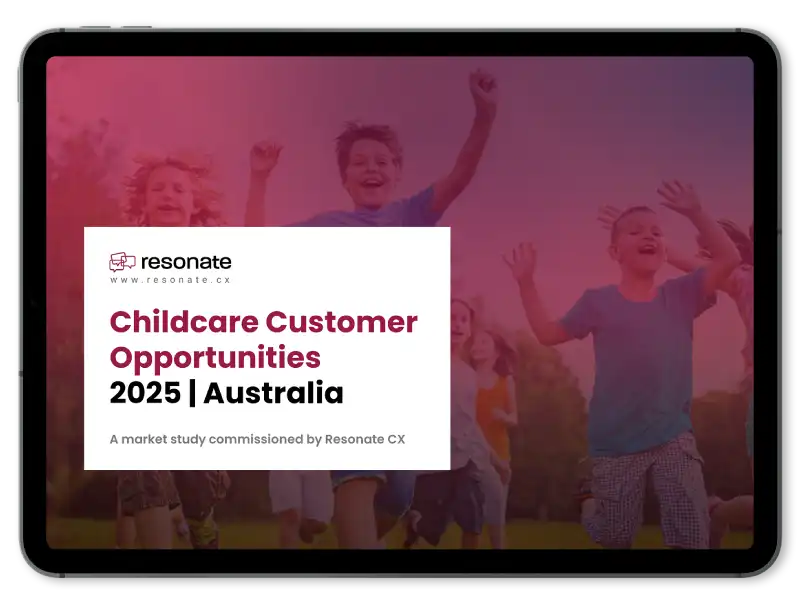TLDR:
- Customer experience (CX) is emerging as one of the most powerful competitive advantages in today’s market. It’s more defensible than pricing or product features because it’s harder for competitors to replicate.
- CX significantly boosts customer satisfaction by ensuring that every interaction is positive and aligned with their expectations. When customers feel understood and valued, they’re more likely to return.
- Businesses that prioritise CX are better equipped to respond to customer needs and adapt to market changes. This agility enables long-term, sustainable growth.
- CX can be a clear differentiator when competing products and services offer similar pricing or features. It enables brands to stand out based on how they treat and serve their customers.
- A competitive advantage through CX is not built overnight; it’s the result of continuous improvement, feedback, and customer listening. Companies that invest in CX today are better positioned for future success.
When growth slows, what do most companies do? Slash prices. Launch a new campaign. Add more features.
But smart leaders know something others don’t:
The real growth lever isn’t always what you sell. It’s how you make people feel while buying it.
What we mean to say is this: customer experience isn’t a “nice to have.”
It’s your most profitable, most defensible advantage.
Why CX is such an important competitive advantage.
1. Stand Out without a Price War
Competing on price or features alone is becoming less sustainable as modern markets grow more saturated. A well-designed CX strategy gives you a competitive edge that’s harder to replicate than product specs or discounting tactics. It becomes part of your identity: how customers remember you and why they choose you over others.
Apple is a standout example of a brand that has built its competitive edge not just on innovative products but on a cohesive and intuitive customer experience. According to CDO Times, Apple’s ecosystem strategy—seamlessly integrating hardware, software, and services—has become a major driver of loyalty and revenue. This is reinforced in-store through well-designed retail spaces and helpful, personalised service that enhances the overall brand experience.
2. Stronger Customer Loyalty and Reduced Churn
People stay with brands that make them feel valued and supported. Consistent, positive experiences help build emotional connections that go beyond transactional loyalty. Over time, this leads to reduced churn and a more stable customer base, one that sticks with you through changes in pricing, product, or competition.
3. Enhanced Customer Lifetime Value (CLTV)
Loyal customers don’t just come back but also tend to spend more. Focusing on great CX is a tried-and-tested way to encourage repeat purchases and longer-term engagement. This increases the overall value of each customer relationship and supports more sustainable revenue growth. Key CX drivers that support better CLTV include:
- Fast and friendly service
- Relevant personalisation
- Frictionless issue resolution
4. Lower Customer Acquisition Costs
Strong CX can serve as its own marketing engine. Customers who enjoy their interactions with your business will often enthusiastically recommend you to people they know. Organic advocacy from satisfied shoppers reduces your reliance on paid acquisition tactics. A better experience can also improve your conversion rates and stretch each marketing dollar further.
5. Creation of Brand Advocates (High NPS)
Exceptional CX turns satisfied customers into enthusiastic promoters. High Net Promoter Scores (NPS) signal that your audience is willing to vouch for your brand. At Resonate CX, we see this reflected in real-time feedback and sentiment data. These customers are more likely to:
- Leave positive reviews
- Recommend your brand to peers
- Defend your reputation when others criticise it
6. Positive Brand Perception and Reputation
Every interaction a customer has with your brand will go on to shape your reputation. Delivering consistently good experiences builds a reliable image, while poor experiences, however rare, can do lasting damage. More than simply attracting customers, a reputation for great CX also makes your business more appealing to partners, employees, and investors.
7. Improved Competitive Resilience
A loyal customer base can turn into a powerful buffer in the face of conditions like economic headwinds, supply disruptions, or aggressive competition. Build a strong CX foundation today, and you’ll find it easier to retain support in uncertain times. Customers are more forgiving during setbacks when you’ve already earned their trust through good service, transparency, and respect.
8. Empowered Employees Drive Better Experiences
Behind every great customer experience is an empowered employee. When teams are equipped with the right tools, training, and autonomy, they’re more likely to deliver service that feels human, helpful, and consistent. A customer-centric culture starts from within—when employees feel supported, they’re naturally more motivated to go above and beyond for your customers.
Empowered employees can resolve issues faster, personalise interactions more meaningfully, and proactively spot opportunities to delight. This not only improves satisfaction in the moment but also strengthens long-term relationships. Companies like Zappos and Ritz-Carlton have built their reputations around giving staff the freedom to make customer-first decisions—and in turn, they’ve reaped the rewards in loyalty and word-of-mouth. Investing in your internal culture is one of the most direct ways to enhance your external customer experience.
Moreover, positive employee experience and positive customer experience are closely linked. When your people believe in the company’s mission and feel valued in their roles, it creates a ripple effect that customers can sense. By aligning employee incentives, communication, and workflows around CX goals, you create an organisation where great service isn’t just encouraged—it’s inevitable.
Conclusion
In a crowded marketplace where price and features can be easily matched, customer experience is one of the few remaining levers that offers true, lasting competitive advantage. As we’ve seen, a strong CX strategy not only sets you apart—it builds loyalty, increases customer lifetime value, reduces acquisition costs, and turns satisfied customers into passionate brand advocates. Perhaps most importantly, it strengthens your business’s resilience in times of uncertainty.
The companies that lead today are the ones that make CX a core part of their identity—not a side project, but a central strategy.
If you want to grow sustainably and win long-term, now is the time to invest in creating a culture that puts the customer experience first.












